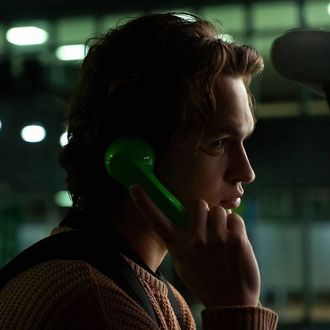
Update, Monday, May 2 at 5:15 p.m.: In response to the Hollywood Reporter piece questioning the accuracy of his Tokyo Vice memoir, journalist Jake Adelstein has gone back to his No. 1 source: himself. Adelstein shared a folder of several emails and articles on Twitter, writing, “Twitterdachi Please share.” “Here is an updated folder of source materials used in my work and #TOKYOVICE,” he continued. “So you can decide what’s credible. It also has some files related to unscrupulous journalists. Because it’s true, a man without enemies is no man at all.”
Original story published April 29, 2022, follows.
Tokyo Vice, HBO Max’s show about yakuza gangs and an expat journalist who investigated them, could possibly be based on some Tokyo lies. Per a report from The Hollywood Reporter, insiders have questioned the truthfulness of Jake Adelstein’s 2009 memoir, Tokyo Vice: An American Reporter on the Police Beat in Japan. “I don’t think half of that stuff in the book happened, it’s just in his imagination. It’s fiction,” said filmmaker Philip Day, who met Adelstein in 2010 while working on a documentary for National Geographic called Crime Lords of Tokyo. Day stated that his team grew suspicious of the credibility of the well-known journalist. Adelstein, of course, maintained in an interview with THR that he did not make any events up.
The journalist rose to prominence after reporting that four major figures in Japanese crime syndicates received liver transplants in the U.S. thanks to a deal with the FBI. He was the first Westerner to be hired at leading Japanese news outlet Yomiuri Shimbun, and developed a reputation as an expert who had extensive contacts and knowledge tied to Japan’s world of organized crime. Adelstein’s former colleague Tsujii, who was the inspiration for a Francophile character named Tin Tin on the HBO show, said that Adelstein’s book contained “exaggerations.” For example, Adelstein wrote that in his first year, Yomiuri superiors allowed him to embark on an undercover operation in which he impersonated the friend of a murder suspect. “In Japan, even the police don’t do real undercover operations,” Tsujii said. “It’s basically illegal and evidence can’t be gathered that way, though there have been some legal reforms recently. … The Yomiuri was very strict about that kind of thing.”
Adelstein’s book includes descriptions of him participating in martial-arts duels at a newspaper company party, beating up a yakuza bouncer with aikido skills, and running into female sources who said they wouldn’t give him information unless he had sex with them. THR notes that there are people who affirm the veracity of Adelstein’s drama-filled claims, including that Adelstein’s life was threatened after he wrote about the head of a notorious gang. But as it turns out, the level of truth of the source material might not be of that much concern to the show anyway. After all, Tokyo Vice executive producer John Lesher reminded THR that the show is merely “inspired” by the journalist’s book. “There were so many things that we embellished and created that had nothing to do with, let’s call it ‘the real Jake Adelstein story,’” he said. “Whether the book is true or not, you should take it up with him and the people depicted in the book. I wasn’t there.”


